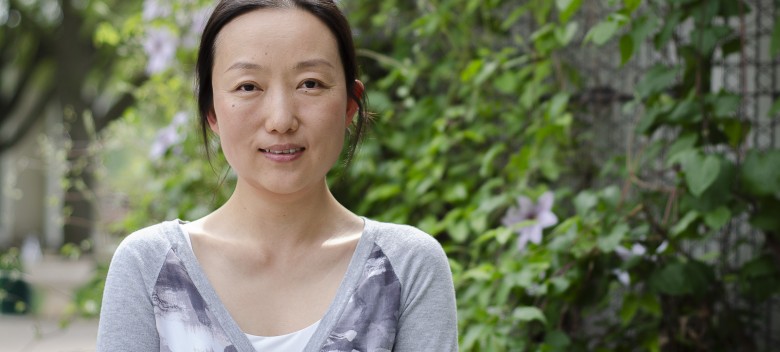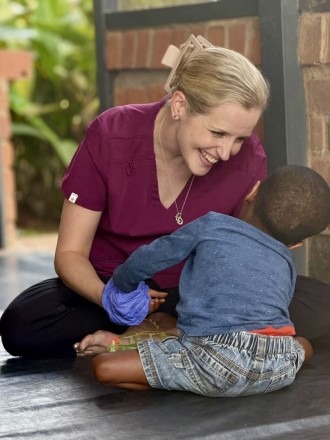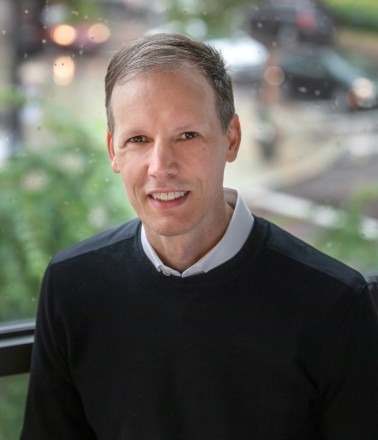For Faculty Member, Building Community Makes Better Nurses

Jingjing Pan, assistant professor of nursing, had already had a full nursing education by the time she began as a student at Saint Luke’s College of Health Sciences (before it became part of Rockhurst University in 2020).
She had a nursing degree from her native China and had spent several years as an English educator in the country. She then faced a decision as her husband — an American whom she had met in China — was due to return to the states. They made the decision to come to the U.S., and Pan began the process of earning her nursing degree for the second time.
“It’s a different culture, and you use different language and there are different practices” she said. “I started over. It seemed like the rightcall.”
Pan graduated from Saint Luke’s College of Health Sciences and then pursued a graduate nursing degree. The idea of teaching — nursing this time — emerged again.
“I really wanted to combine both of my dreams,” she said. “And after being a bedside nurse for three year, I decided to go back to school to get a nursing educator degree. After I graduated, I took a job teaching here at Saint Luke’s. It was a full-circle moment.”
At Rockhurst, Pan teaches primarily pathophysiology to first-year nursing students. The course, the study of disease in the body, is known as one of the toughest for those early in the program.
“The students are motivated and excited, and they want to do this, but they are also very nervous,” she said. “They have mixed emotions. I love that stage, because I share that passion, but it is also a good time for faculty to reassure them and help them through. I take pride in being able to do that.”
Since joining the faculty, Pan has dedicated herself to finding ways to help all students in the nursing program be successful in their first year and beyond, She established a peer mentor program for all nursing students. And, alongside Emma Shotton, assistant professor of nursing, she developed a resource course for nursing students whose first language was something other than English. There’s a simple reason she said these measures are important — as someone who herself was once navigating these challenges, it’s the sort of option for support she wishes she had.
“I understand your struggles because I was literally in your seat,” she told her students.
There’s another reason. As a cardiac nurse herself at Saint Luke’s Hospital, Pan knows firsthand the value of the nursing workforce reflecting the wide-ranging American population. To be good nursing professionals in the field, they need to be experienced, adaptive and open to those myriad experiences and backgrounds.
“I tell students, ‘you will be the nurses taking care of my family,’” she said. “I won’t be there. I want them to be able to give the same level of great care no matter who it is they are interacting with.”



